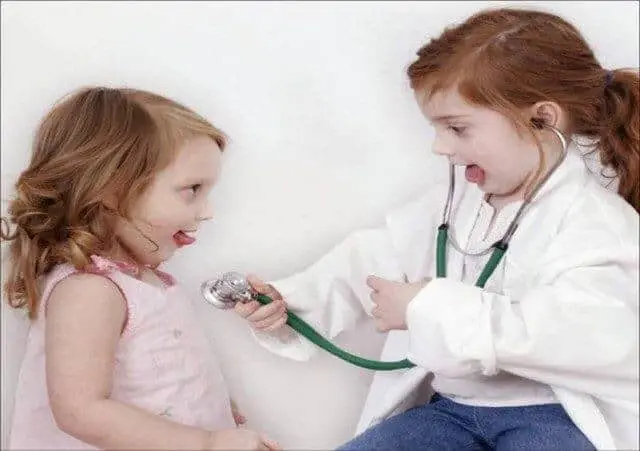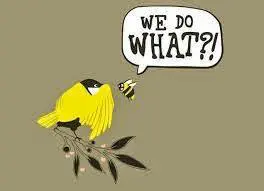“She has a butt.” These were the very confusing words my toddler randomly said to me, while using the bathroom, shortly after he had been visiting his little cousin for the day. “What?” I said, “Yes, everyone has a butt, honey.” “No”, he said, “she has a butt for a pee-pee.” You can then mentally insert rather hysterical laughter from me. My niece is also potty training, and as a result often ends up butt-naked running around the house. My son, who only has little brothers, noticed that she didn’t look like him “down there,” and that she had what he thought look like a “butt,” apparently.
Is it normal for toddlers to notice one another’s genitals, or even compare them?

How can you help your toddler understand his/her private parts in a healthy way?
Don’t respond to such play in a negative manner. Simply redirect any children involved to a new activity, and explain those parts are private. While not cause for concern, this type of behavior does mean it may be time to help your toddler learn about the human body. There are many toddler-age children’s books available for this purpose, but just talking about it together usually helps the most. Teaching your child what a penis and vagina are is no different than teaching what an eyeball and nose are. They are parts of the body that your child needs to know about. This is also a good time to explain personal boundaries–to start teaching keeping your hands to yourself.
Your toddler will also likely have interesting questions like why their cousin has a “butt” rather than a “pee-pee.” Don’t avoid questions. Use them as an opportunity for learning. Answer any questions in a direct, simple way. Avoid cute little lies, like the stork brought you, and excessive, unnecessary detail. For instance, in the butt example, you could just say, “Your cousin does have a pee-pee. Little girls have different pee-pees than little boys.” It is OK, and even beneficial, to use actual terms and not nick-names, but this falls under your own comfort level. Once your child has learned what they want to know, and has temporarily satiated their curiosity about sexuality, they’ll move on — for awhile at least.
At what point, if any, should you be concerned?
If your toddler exhibits knowledge of sexual acts beyond their age range, for example attempting to kiss another child’s private parts, or any kind of insertion, this is definitely cause for concern. This could be a sign of sexual abuse or simply that someone is letting your child watch programming they shouldn’t be seeing.
Other things to watch out for:
-You frequently find your child “playing doctor.”
-Other children involved in the play are not close in age or don’t see one another often.
-The play is planned and didn’t just happen. Example: One child intentionally leads another out of adult view to “play doctor.”
-Your child isn’t easily redirected to a new activity.
-Any child involved is upset, sad, or aggressive and threatening.
In any case, ask questions, but again don’t punish. Find out in a non-accusing way what the children felt was going on, in their own words, why they were doing it, and where they learned it. All of the above can offer insight into the problem — if there is one — as well as help solve it if necessary.
You may also find helpful:
When Toddlers Touch Themselves: What to Do About Private Part Touching
The Sex Talk Timeline: When Should You Talk to Your Kids About Sex?


